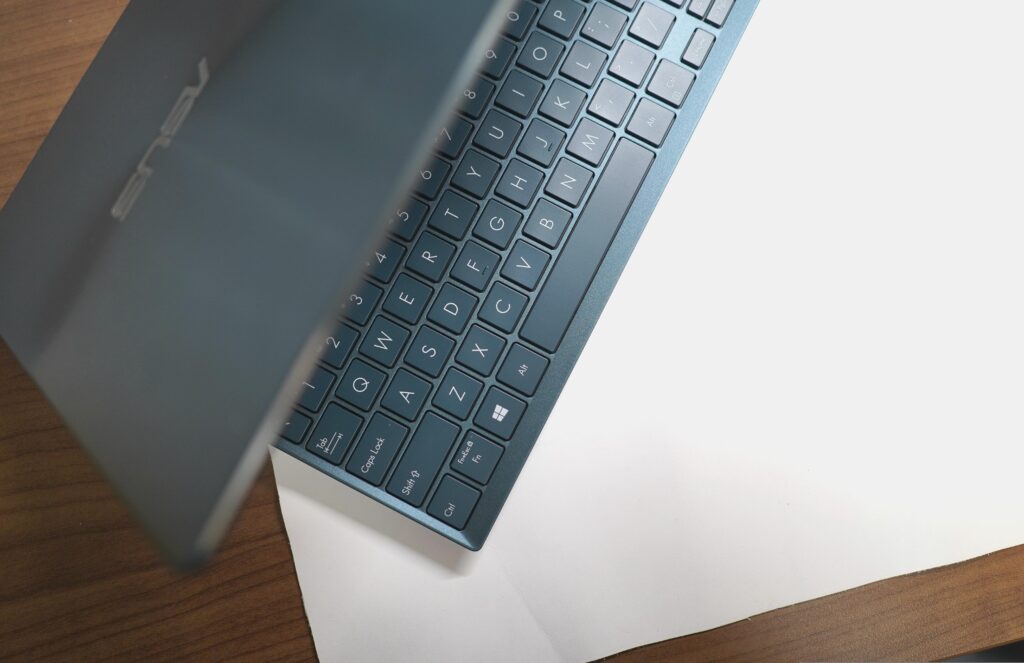Innovations in the constantly developing world of technology are always changing how we engage with our devices. The haptic keyboard is one such creativity that has been growing popularity. A haptic keyboard, though, what precisely is it, and how does it operate? Come along as we explore the mysterious world of tactile keyboard.
Table of Contents
What is Haptic Keyboard?
A haptic keyboard, usually referred to as a touch feedback keyboard, is a revolutionary input device that combines the convenience of a touchscreen with the tactile reaction of traditional physical keyboards. It mimics the feel of pressing real keys when typing on a flat, touch-sensitive display, giving users a tactile typing experience.
The Science Behind Haptic Keyboards
Understanding the haptic technology behind keyboards is crucial to comprehending how they operate. These keyboards combine several different technologies, such as capacitive touch sensors and haptic feedback actuators. On a haptic keyboard, when you contact a key, the capacitive sensor registers your touch and the haptic actuator reacts by sending out a light vibration or tactile feel. This provides suggestions as you type while simulating the feeling of pressing an actual key.
Haptic Keyboards vs. Traditional Keyboards
Although haptic keyboards offer numerous advantages, there are also plenty of people who are skeptical about them. The ability of haptic keyboards to accurately simulate the sensation of physical keys is a topic of much dispute among fans of the traditional keyboard. We’ll examine this issue and compare haptic keyboards to conventional ones to determine how they compare so you will get the justified answer about what is haptic keyboard.

Benefits of Haptic Keyboards
1. Enhanced Typing Experience
Compared to conventional touchscreens, haptic keyboards provide a more immersive and gratifying typing experience. These keyboards’ haptic feedback enhances the precision and responsiveness of typing.
2. Reduced Typing Errors
The haptic feedback makes users less inclined to make typographical errors. This may be especially useful for tasks requiring accuracy, like professional writing or computer coding.
3. Accessibility
Accessibility for people with visual impairments can be improved with haptic keyboards. Users can more easily navigate their devices because to the haptic feedback.
Also see the battle between AMD Ryzen vs Intel Core i7: Battle of the Processors

Applications of Haptic Keyboards
Haptic keyboards have found applications in various fields:
- Smartphones and Tablets: Many modern smartphones and tablets incorporate haptic keyboards to enhance the user experience.
- Gaming: Gamers can benefit from the tactile feedback provided by haptic keyboards, improving their gaming performance.
- Medical Devices: Haptic keyboards are used in medical devices, ensuring that healthcare professionals can input data accurately and efficiently.
Exploring the Future of Haptic Keyboards
Haptic keyboards appear to have a bright future as technology develops. The tactile feedback and overall experience for users are always being improved by engineers and designers. Here are some noteworthy upcoming events:
1. Enhanced Feedback Customization
Future haptic keyboards will probably provide much greater customizing possibilities. Both the degree of vibration and the particular feel of each key may be adjustable by users. This degree of customization could completely alter the typing process.
2. Integration with Virtual Reality
Haptic keyboards may be essential in these immersive environments as virtual reality (VR) and augmented reality (AR) technologies gain popularity. Wearing a VR headset, picture pressing keys on a virtual keyboard as though they were real.

3. Gaming Evolution
Haptic feedback is already helpful to the gaming business, but it will probably continue to advance. Because they provide unmatched precision and virtual world immersion, haptic keyboards could eventually grow into standard equipment for gamers.
4. Accessibility Innovations
Keyboards with haptic feedback have already increased accessibility for people with disabilities. They might become even more inclusive in the future thanks to features made to accommodate a wider spectrum of users.
5. What is Haptic Keyboard technology Integration into Everyday Objects
Possible applications for haptic technology outside of keyboards include other commonplace items. For instance, the dashboard of your car might have haptic controls that let you control it with greater caution while maintaining eye contact with the road.
6. What is Haptic Keyboard Feedback for Virtual Meetings
Haptic feedback could make human relationships more effective in the age of distant work and virtual meetings. Think of experiencing light sensations whenever someone joins the virtual meeting space or as you get a message.
The most demanded Atrix Keyboard: The Ultimate Tool for Gamers – Dominate the Virtual Battlefield!
Frequently Asked Questions (FAQs)
Q1) Can I customize the haptic feedback on a haptic keyboard?
Yes, users may adjust the vibration patterns and feedback intensity on the majority of haptic keyboards to fit their tastes.
Q2) Are haptic keyboards more durable than traditional ones?
Since haptic keyboards do not have the actual keys that can degrade over time, they are typically more robust.
Q3) Do haptic keyboards consume more battery?
Modern haptic keyboards are made to be energy-efficient, even if haptic feedback does take some battery power.
Q4) Can I disable the haptic feedback if I don’t like it?
In most cases, you can turn off the haptic feedback feature in the settings on your gadget if you’d rather stick with a regular touchscreen interface.
Q5) Are haptic keyboards only for high-end devices?
No, haptic keyboards are growing more and more prevalent and are available in a variety of devices, including reasonably priced models.
Q6) Do haptic keyboards work underwater?
No, haptic keyboards do not work underwater since they rely on touch-sensitive technology.
Conclusion
Innovation in the field of technology is limitless. Users can now enjoy a satisfying and useful tactile typing experience thanks to the unique marriage of touchscreens and physical keyboards known as haptic keyboards. Potential futures for haptic keyboards are virtually endless and promise greater customizability, integration with cutting-edge technologies, and increased accessibility. Therefore, this answers to what is haptic keyboard are about to change the way you engage with your gadgets, regardless you’re a moderate smartphone user or an avid gamer.
Have a look at Moontower V2 Keyboard: The Future of Mechanical Keyboards

